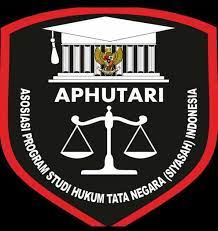Philosophy of Tashrī‘ Review on Internalization Maja Labo Dahu in The Legal System of The Sultanate of Bima
DOI:
https://doi.org/10.15642/ad.2022.12.1.108-128Keywords:
Tashrī’ philosophy, Maja Labo Dahu, Family Law, Sultanate of BimaAbstract
Maja Labo Dahu's philosophy represents the Bima community's local values that have been internalized into Islamic law. This research aims to find answers to the issues examined, namely the existence of Islamic law in the Sultanate of Bima. The primary focus lies in the analysis of the implementation of Islamic law during the Sultanate of Bima and the internalization of the philosophy of Maja Labo Dahu within the Sultanate of Bima. The method used in this research is a descriptive qualitative method, which explores written documents and information from Bima community figures who know the implementation of Islamic law in the Sultanate of Bima as a result of the internalization between the philosophy of Maja Labo Dahu and the fiqh tashrī' in Islam. The data used in this research were obtained through observation, cross-checking interviews, and literature study. The findings of this research reveal that Islamic law has existed in the Sultanate of Bima since Islam was accepted as the official religion, based on the legitimacy of the theory of shahada, which explains the application of Islamic law coinciding with the Bima community's embrace of Islam. However, formally and juridically, Islamic law was declared applicable throughout the Sultanate of Bima after the establishment of three legal institutions, namely Sara Tua, Sara Sara, and Sara hukum, which were responsible for coordinating the implementation of laws such as flogging, stoning, retribution, and discretionary punishment. The philosophy of Maja Labo Dahu has been internalized into the Islamic law of the Kingdom of Bima, causing the Bima community to feel fear and shame in committing legal violations.
Keywords: Tashrī’ philosophy, Maja Labo Dahu, Family Law, Sultanate of Bima.
Downloads
References
Azis, Mohammad Taufik. “Analisa Kinerja Perbankan Syariah Indonesia Ditinjau Dari Maqasyid Syariah.” Al-Amwal: Jurnal Ekonomi Dan Perbankan Syari’ah 10, no. 1 (2018). https://doi.org/http://dx.doi.org/10.24235/amwal.v10i1.2808.
Chamber-Lor, Henri, and Siti Maryam R. Salahuddin. Bo Sangaji Kai Catatan Kerajaan Bima. Jakarta: Yayasan Obor Indonesia, 2012.
Fawaid, Imam. “Konsep Sadd Al-Dzari’ah Dalam Perspektif Ibnu Al-Qayyim Al-Jauziyah.” LISAN AL-HAL: Jurnal Pengembangan Pemikiran Dan Kebudayaan 13, no. 2 (2019). https://doi.org/https://doi.org/10.35316/lisanalhal.v13i2.599.
Hadi, Nur, and Sabariyah Sabariyah. “Falsafah Hikmah Tashrī‘’Perespektif Syekh Ali Ahmad Al-Jurjawi.” Jurnal Mahkamah: Kajian Ilmu Hukum Dan Hukum Islam 4, no. 2 (2019). https://doi.org/https://doi.org/10.25217/jm.v4i2.496.
Haris, Tawalinuddin. “The Entry of Islam And The Emergence of Bima As the Central Powers of Islam in Nusa Tenggara Area.” Al-Qalam 17, no. 2 (2011). https://doi.org/http://dx.doi.org/10.31969/alq.v17i2.121.
Hasan, Hamzah, Hasse Jubba, Irwan Abdullah, Mustaqim Pabbajah, and Abd Rahman R. “Londo Iha: Elopement and Bride Kidnapping amongst the Muslims of Monta, Bima, Indonesia.” Cogent Social Sciences 8, no. 1 (2022). https://doi.org/10.1080/23311886.2021.2023973.
Husairi, Halil. “Ta’zir Dalam Perspektif Fiqh Jinayat.” Al-Qisthu: Jurnal Kajian Ilmu-Ilmu Hukum 16, no. 2 (2018). https://doi.org/https://doi.org/10.32694/qst.v16i2.787.
Ilyas, Husnul Fahimah, and Hamzah Harun Al-Rasyid. “Religion And State Cohesion: The Importance Of Getting Reference From Lontaraq Akkarungeng Wajo Concerning The Islamization In Bugis.” Heritage of Nusantara: International Journal of Religious Literature and Heritage 7, no. 1 (2018). https://doi.org/https://doi.org/10.31291/hn.v7i1.488.
Ismail, M. Hilir. Kebangkitan Islam Di Dana Mbojo (Bima) (1540-1950). Bogor: CV. Binasti, 2008.
Kasdi, Abdurrahman. “Maqasyid Syari’ah Perspektif Pemikiran Imam Syatibi Dalam Kitab Al-Muwafaqat.” YUDISIA: Jurnal Pemikiran Hukum Dan Hukum Islam 5, no. 1 (2016). https://doi.org/http://dx.doi.org/10.21043/yudisia.v5i1.693.
Mawaddah, Kartini. “Diplomatik Sultan Abdul Hamid Di Kerajaan Bima Tahun 1773-1817 M.” JUSPI: Jurnal Sejarah Peradaban Islam 1, no. 1 (2017). https://doi.org/http://dx.doi.org/10.30829/j.v1i1.1004.
Murtadha, Rahmah, and Muhammad Mutawali. “Implementasi Hukum Islam Di Kesultanan Bima.” STIS Al Ittihad Bima. OSF Preprints, 2017. https://stisbima.ac.id/implementasi-hukum-islam-di-kesultanan-bima/.
———. “Politik Hukum Pembentukan Badan Hukum Syara’Kesultanan Bima,” 2017. https://doi.org/doi:10.31227/osf.io/xzdpq.
Nur, Muhammad Tahmid. Menggapai Hukum Pidana Ideal Kemaslahatan Pidana Islam Dan Pembaruan Hukum Pidana Nasional. Deepublish, 2018.
Peters, Rudolph. Crime and Punishment in Islamic Law: Theory and Practice from the Sixteenth to the Twenty-First Century. Cambridge: Cambridge University Press, 2005.
Qomarauzzaman, Qomarauzzaman. “Sanksi Pidana Pelaku LGBT Dalam Perspektif Fiqh Jinayah.” Raheema: Jurnal Studi Gender Dan Anak 3, no. 1 (2016). https://doi.org/https://doi.org/10.24260/raheema.v3i1.563.
Ridwan, Muannif, M Hasbi Umar, and Abdul Ghafar. “Sumber-Sumber Hukum Islam Dan Implementasinya.” Borneo: Journal of Islamic Studies 1, no. 2 (2021). https://doi.org/https://doi.org/10.37567/borneo.v1i2.404.
Sabariyah, Nurhadi; “The Philosophy of Hikmah Tashrī‘’Based on the Perspective of Syekh Ali Ahmad Al-Jurjawi.” PETITA: Jurnal Kajian Ilmu Hukum Dan Syariah 5, no. 1 (2020). https://doi.org/https://doi.org/10.22373/petita.v5i1.20.
Salahuddin, Muh. “Mahkamah Syar‘iyyah Di Kesultanan Bima: Wujud Dialektika Hukum Antara Islam Dan Adat.” Ulumuna: Journal of Islamic Studies 9, no. 1 (2005). https://doi.org/https://doi.org/10.20414/ujis.v9i1.451.
Sulastri, Susi. “Peranan Sultan Muhammad Salahuddin Dalam Pengembangan Islam Di Bima.” Rihlah: Jurnal Sejarah Dan Kebudayaan 4, no. 1 (2019). https://journal.uin-alauddin.ac.id/index.php/rihlah/article/view/2600.
Yakin, Ayang Utriza. “Hukum Pidana Di Kesultanan Melaka Abad Ke-15 Dan Ke-16 M.” KARSA: Journal of Social and Islamic Culture 24, no. 1 (2016). https://doi.org/https://doi.org/10.19105/karsa.v24i1.1007.
Zada, Khamami. “Politik Pemberlakuan Syariat Islam Di Aceh Dan Kelantan (1993-2014).” AL-IHKAM: Jurnal Hukum & Pranata Sosial 10, no. 1 (2015). https://doi.org/https://doi.org/10.19105/al-lhkam.v10i1.588.
Downloads
Published
How to Cite
Issue
Section
License
Copyright (c) 2022 Al-Daulah: Jurnal Hukum dan Perundangan Islam

This work is licensed under a Creative Commons Attribution-ShareAlike 4.0 International License.





